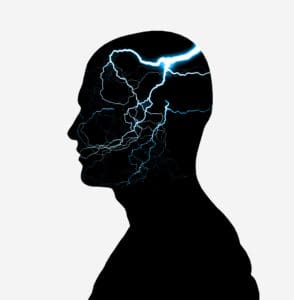 By Megan Johnson McCullough; NASM Master Trainer and Instructor and Professional Natural Bodybuilder
By Megan Johnson McCullough; NASM Master Trainer and Instructor and Professional Natural Bodybuilder
Right at the base of the brain, behind the bridge of the nose, seats the thrown of the pituitary gland. This Napoleonian, pea-sized, gland is dictator to several hormone regulations in our bodies. Together with its servant, the hypothalamus, the production and release of hormones are controlled. These chemicals and messengers in our body have the power to turn a child into an adult, influence our food and water intake, develop our sleep patterns, as well as signal our emotional wellbeing. Hormones work for Napoleon and can direct how the body will operate and function.
HORMONE TYPES
The hypothalamus resides right above the pituitary gland, sending signals and messages in the form of hormones via our blood and nerves. The environment of our bodies’ needs is regulated by this process. The anterior pituitary gland produces cortisol (stress hormone), the growth hormone (regulates our growth, metabolism, and body composition), the sex hormones called Luteinizing and follicle (in charge or egg and sperm maturity), and most notably stimulates the thyroid gland. The posterior pituitary gland produces vasopressin which maintains our water and blood pressure. In women, it also produces labor contractions and milk for child bearing.
ENDOCRINOLGY
The study of endocrinology (hormones) is still in its infant stage, less than 100 years old. As a result, when conditions arise and go wrong with the pituitary gland, there isn’t always a fixable answer. Your body might produce too little, too much, or experience cellular changes of hormones. Blood tests typically reveal any malfunctions, emphasizing the importance of our yearly physicals with blood panels looked at. Other tests like a CT or MRI can detect any changes in size to the gland. Sometimes the resultof the malfunction is actually a noncancerous tumor that has developed.
 IMBALANCES
IMBALANCES
The symptoms of an imbalance would include weight gain, weight loss not on purpose, fatigue, increased or decreased heart rate, dry skin, and sensitivity to heat or cold, depression, anxiety, infertility, thinning of the hair, and/or sweating. We know when our body is not functioning like its normal self. Consulting a doctor is important and there are both natural and prescribed options to help.
DISORDERS
The two most common pituitary disorders are hypothyroidism and Cushing syndrome. People with hypothyroidism tend to become overweight or even obese due to low levels of the thyroid hormone that distorts the function of their metabolism. Cushing syndrome causes high levels of cortisol which increases appetite. People suffer from these disorders also experience constant thirst, weight fluctuations, and need their blood work re-examined from time to time to help stabilize T3 and T4 levels.
FINAL THOUGHTS
When proper levels of exercise and nutrition are met, yet the body still doesn’t respond, it is important to investigate those pesky hormones. From there, we do what we can given the body we have been gifted with. Aging, ethnicity, gender, and lifestyle influence the actions of the pituitary gland. Most times a person is at the doctor’s office for some other reason, when suddenly their blood work reveals that this Napoleon complex has decided to wreak havoc. Be aware of the sign and symptoms and know to seek help when your body just doesn’t feel like it should.







